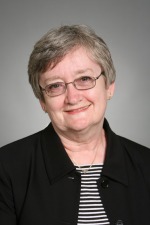Pride comes in all ages

Linda F. Fitzgerald
By Linda F. Fitzgerald
AARP State President
The early days of June are always a wonderfully vibrant time in Massachusetts, and especially for those travelling east to celebrate PRIDE week in Boston. AARP staff and volunteers from across the Bay State proudly participate in the annual festival, providing resources and information to older lesbian, gay, bisexual and transgender (LGBT) residents. And now, more than ever, the needs of this aging demographic are at the forefront of our minds.
According to The Administration on Aging, there are anywhere from 1.7 to 4 million LGBT Americans age 60 and older. The risk factors for social isolation facing this demographic are significant. LGBT older adults are twice as likely to live alone, twice as likely to be single, and three to four times less likely to have children – and many have less-than-close relationships with their families.
No surprise that so many older gay men and women feel isolated, and that many, fearing discrimination, do not come out to caregivers. Still others opt to go without help, even when ill, rather than seeking assistance from service providers. A recent report, "Disparities and Resilience among Lesbian, Gay, Bisexual and Transgender Older Adults" (Fredrickson-Goldsen, 2012), finds that more than 20 percent of LGBT older adults do not disclose their sexual orientation or gender identity to their physician. Of those surveyed, 68 percent reported that they experienced verbal harassment and 43 percent experienced physical violence.
Recognizing the need to look closer at the issues facing senior LGBT residents, the Massachusetts House of Representatives has proposed a special commission to investigate and study the health, housing, financial, psycho-social and long-term care needs of older LGBT adults and their caregivers. The goal: to identify ways to meet the needs of this vulnerable and often invisible aging population.
Once approved, The LGBT Aging Commission, to which AARP has been named, will report on the funding and programming needed to enhance services to the growing LGBT pop-ulation and examine best practices for increasing access, reducing isolation, preventing abuse and exploitation, promoting independence and self-determination, strengthening caregiving, eliminating disparities, and improving quality of life.
Research shows that LGBT elders face higher disability rates and struggle with economic insecurity and higher poverty rates. Many also deal with mental health concerns that come from having survived a lifetime of discrimination. Still others face barriers based on where they live, which, coupled with stigma and discrimination, can make it difficult to find the LGBT-friendly community supports needed to age successfully and avoid social isolation.
As we face a coming age wave that will have a profound impact in the Commonwealth, the time is now to prepare for the future. Programs and services that help our older residents remain independent and in their communities as they age are important for everyone – and should be available to all.
Visit aarp.org/ma for more information about AARP Pride, including resources, events, and information for LGBT seniors and their families.
Attending the Boston Pride Festival on June 8? Stop by the AARP table and say "hello"!
Linda F. Fitzgerald is the volunteer state president of AARP Massachusetts, which serves more than 800,000 members age 50 and older in the Bay State. Connect with AARP Massachusetts online at
www.aarp.org/ma ;
www.facebook.com/AARPMA and
www.twitter.com/AARPMA.
